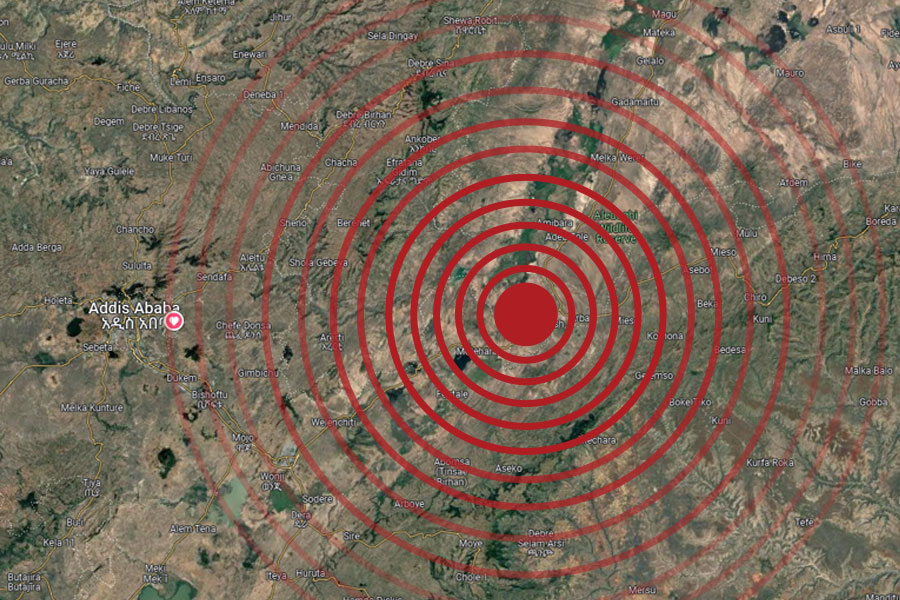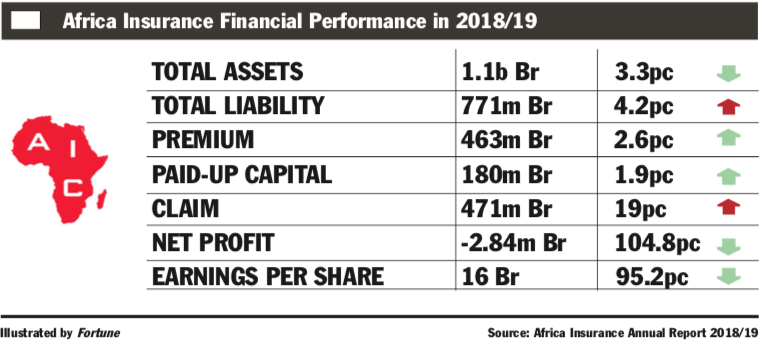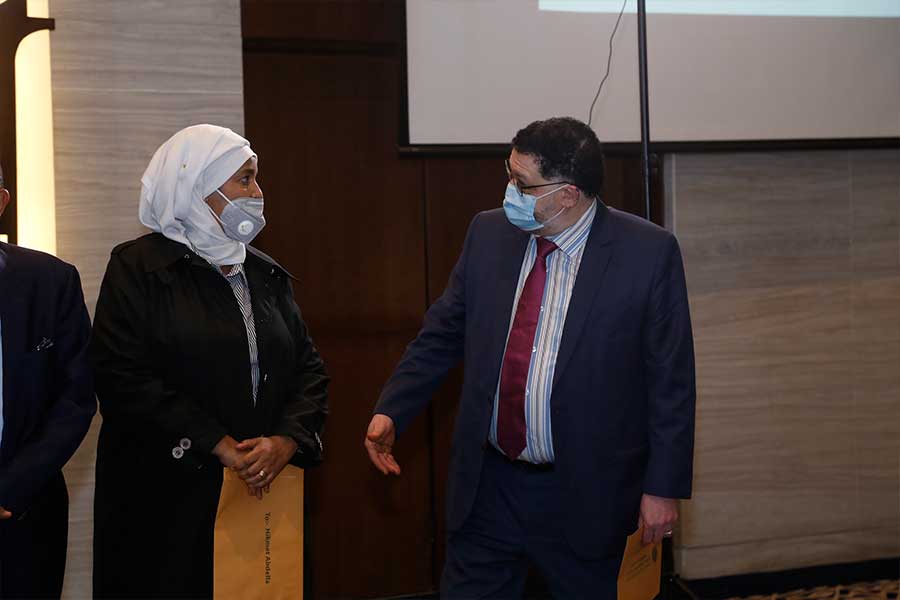
Exclusive Interviews | Jan 05,2020
The practice of princes employing commoners to take up their punishment was not uncommon, although evidence for it is not as strong. Historians debate whether this really happened. The commoners alleged to be taking up this job were called whipping boys. They were punished for mistakes committed by princes – the term lending itself to someone that takes the blame for the transgression of others. In a way, for the princes at least, it was a form of insurance.
The term came to mind when a friend asked me to share my experience in insurance with him, as he was planning to apply for a risk and compliance manager position at a company. I had a good story for him.
It was a Sunday. I was walking with my mother to pay the monthly fee to our Idir’s contribution, burial insurance. The streets were pierced by a new asphalt road that winded around our neighbourhood. Along its trajectory were the houses of many of our neighbours, as well as ours.
It was a slum, and it often seemed like we lived in one big house. The roofs of the houses were so close it was not easy to tell apart. I must have been six at the time, the smell and ambience of eucalyptus trees sketched in my mind.
The asphalt road was not the central topic in our minds. It was the only one. As talks about the road started to fret our neighbourhood, turning its mood somber, worry surely but slowly started looming on the household head’s faces.
Fortunately, our family had received assurance that we would be spared because of the neighbourhood politics. Nonetheless, the experience forced our family to stagger to acquire land through a lease.
On that day, when my mother and I were on our way to make our Idir contribution, we came out to the road and turned left. We suddenly heard a resounding blast and the ensuing commotion. As we dashed in its direction, my mother left me on the extreme end of the pedestrian walkway and joined the many people running here and there as though they had caught fire on the head. A small vehicle had caught fire, crashed under an electric pole.
Amidst the hullabaloo to put out the fire, many fell to the ground and injured themselves, while my mother shredded her netella, a traditional cloth. Stories about the incident endured through the years. The owner of the vehicle looked unaffected by what was going on; it was then I heard about the word insurance first and its essence. He was worried for his life but not much else.
Decades later, I had a chance to work on two companies insurance programmes, engaged in various fields. It largely identified potential for risks in the conduct of the respective company’s businesses and recommended insurance against it. The same may be valid for interpreting insurance contracts and reviewing their effect on company policies and procedures.
Yet, it was rampant complacency of failure in coordinating the filing of claims and maintenance of related records, leaving the initiation of the negotiation for the placement or renewal of insurance coverage with the insurance company, an issue at the mercy of clerks. Records not being followed up and updated are consequential. It could mean paying attention to risks that really do not matter for the businesses to those that are highly consequential.
There are impending risks that impinge on the reputation, safety, security, financial sustainability and existence of entities, potentially undoing years of hard work. On the other hand, the insurance industry also needs to secure assurance from the health care system to effectively cover liabilities. This way, the world is a slightly better place. We would all have whipping boys, whether the fault was ours. With good insurance, a man that ran into an electric pole does not have to worry about going bankrupt, and families who have to leave their house for development purposes are insured against being thrown out into the streets through government support.
PUBLISHED ON
Feb 12,2022 [ VOL
22 , NO
1137]


Exclusive Interviews | Jan 05,2020

Radar | Sep 14,2019

Radar | May 04,2024

View From Arada | Oct 12,2024

Fortune News | Jan 11,2020

Fortune News | Sep 06,2020

Fortune News | Feb 01,2020

Commentaries | Nov 13,2021

Fortune News | Nov 27,2021

Commentaries | Jul 22,2023

Dec 22 , 2024 . By TIZITA SHEWAFERAW
Charged with transforming colossal state-owned enterprises into modern and competitiv...

Aug 18 , 2024 . By AKSAH ITALO
Although predictable Yonas Zerihun's job in the ride-hailing service is not immune to...

Jul 28 , 2024 . By TIZITA SHEWAFERAW
Unhabitual, perhaps too many, Samuel Gebreyohannes, 38, used to occasionally enjoy a couple of beers at breakfast. However, he recently swit...

Jul 13 , 2024 . By AKSAH ITALO
Investors who rely on tractors, trucks, and field vehicles for commuting, transporting commodities, and f...

Nov 1 , 2025
The National Bank of Ethiopia (NBE) issued a statement two weeks ago that appeared to...

Oct 25 , 2025
The regulatory machinery is on overdrive. In only two years, no fewer than 35 new pro...

Oct 18 , 2025
The political establishment, notably the ruling party and its top brass, has become p...

Oct 11 , 2025
Ladislas Farago, a roving Associated Press (AP) correspondent, arrived in Ethiopia in...